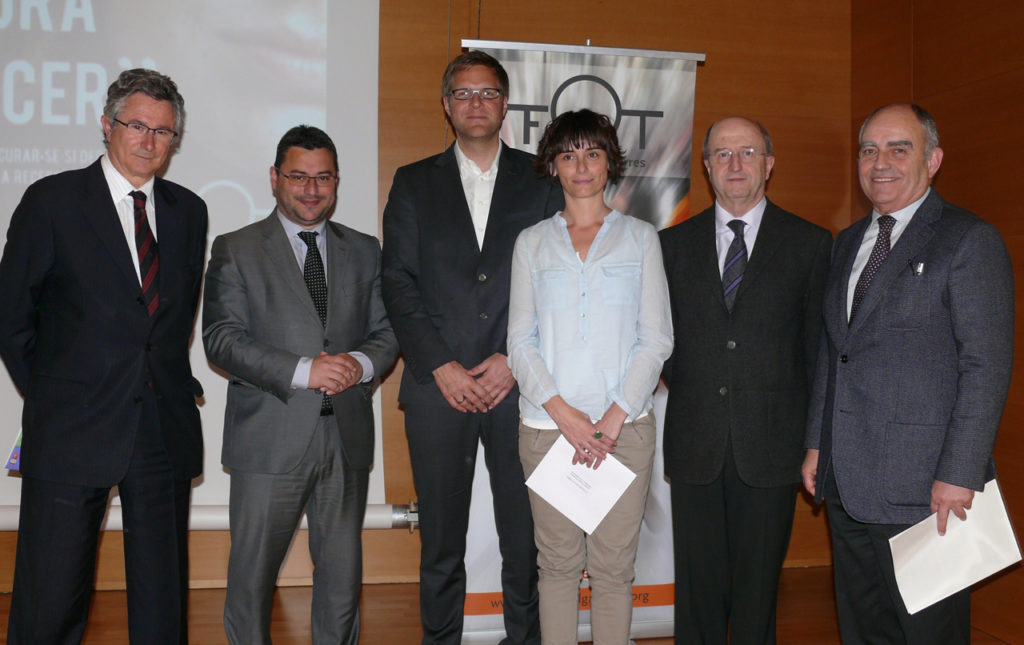Olga Torres Foundation (FOT) has awarded two postdoctoral fellowships in colon cancer; Rachel Batlle from the Signalling and Cell Cycle Lab., Institute of Biomedical Research of Barcelona (IRB), Holger Heyn Program from the Epigenetics and Cancer Biology Program (PEBC), IDIBELL.
The postdoctoral researcher Rachel Batlle will work for two years on “Contribution of p38 MAPK signaling in colorectal tumorogenesis associated to colitis” project with funding of 60,000 euros.
The postdoctoral researcher Holger Heyn held for two years the project “Cancer Genomics in the colorectal System” with funding of 60,000 euros.
Since 2005, the FOT has been calling every year grants to study in colorectal cancer, specifically for the study of mechanisms of carcinogenesis, prevention factors, disease progression, identification of new molecular targets, assessment of molecular response variables drug, epidemiology, pathology prognostic factors, and new therapeutic chemoprevention studies.
The Olga Torres, private and non-profit Foundation is dedicated to cancer research and its relationship to immune disorders. It aims to promote scientific, technological and social research at a high level within the university context, research centers or specialized institutes.
To this end, the FOT financed directly specific research and cancer treatment research-related colon, scope cancer has focused its expertise, since it is one of the diseases with the greatest impact on the population and currently undergoes considerable growing, indiscriminately affecting both men and women. FOT resources come from the income of their heritage and the donations received by allocating 95% of the allocation of grants.
Colorectal cancer is a malignant tumor that is located at different levels within the large intestine. The tumor can be situated at the end of the colon or intestine, in the rectal area. It is the second neoplasia (abnormal tissue formation) more frequent after breast cancer in women and lung cancer in men.
In the United States and New Zealand 50 cases occur per 100,000 inhabitants. In Senegal, Colombia and India, less than 10 cases per 100,000 inhabitants. In Spain, are given 31 cases per 100,000 men and 21 cases per 100,000 women. Traditionally, it has been considered that equally affects both men and women, although recent studies have shown that colon cancer occurs in women and men’s straight.
They found that colorectal cancer arises from a combination of genetic and environmental factors: heredity determines individual susceptibility to colorectal cancer, while environmental factors interact with this susceptibility to lead to small adenomatous polyps (growths mushroom are usually benign, but some develop into cancer over time), larger adenomatous polyps and eventually cancer.

